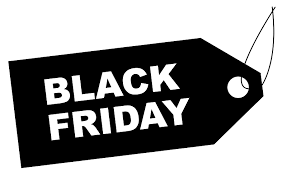Be an affiliate: No experience or expertise required.
My last post introduced you to affiliates, behind the scenes bloggers/influencers making money.
These affiliate wine programs are not limited to a few small-time bloggers making a few bucks. The popular Wine of the Month Club has numerous, and, of course, everyone wants to have a link that leads to a commission from Amazon.
For example, Vinepair which I like and regularly follow tries to downplay it this way:
- “From time to time we work with various partners to highlight wine, beer, spirits and other products that we believe you, our readers, will be interested in learning about. When we link to Amazon and other 3rd parties with affiliate programs (and remember to tag those links) we earn a small commission.”
FYI: Amazon is said to pay a commission in the 1%-10% range, depending on the product. And should you check my review of Amazon’s wine selection at www.robywine.com, you’ll see the selection is vast.
I recently clicked on a review of wine clubs published by CNET. Now we have definitely left the small world of wine bloggers, and CNET lays out an interesting background for why it, of all websites, is reviewing wine clubs:
“So which is the best wine of the month club or subscription for you, your budget and habits in 2019? If all of these choices seem overwhelming, we get it. It’s like being in wine country. That’s why we canvassed the wine club landscape to uncork the best memberships for you.”
Setting aside the bizarre use of the word “canvassed,” if you read the fine print you are told: “CNET editors pick the products & services we write about. When you buy through our links, we may get a commission.”
The assumption is that wine and wine clubs are just another product worthy of review and compensation when reviewed favorably. One day you review fitness watches and hotspots, the next wines or wine clubs.
BUT NO. Not so fast.
As CNET noted,
“Wine can be “overwhelming.”
Well, for most people, except for the editors of CNET who can canvass the landscape, wine is complicated and both knowledge of and personal experience with the subject are essential before passing judgment.
But this brings me to the main point: wine continues to intimidate people, unlike shoes, fitbits, appliances, and most other products and personalized services.
Can’t recall how many people once hearing what I did as a profession would then apologise for some reason for not knowing much about wine.
When buying wine, people still need good, reliable, and unbiased advice.
It is pretty obvious that most publications mentioned with affiliates are targeting the millennial audience.
Millennials are targeted because, among many reasons, they might subscribe to a wine club.
One website focuses on financial advice for millennials also explored wine clubs and ended this way:
“You can trust the integrity of our balanced, independent financial advice. We may, however, receive compensation from the issuers of some products mentioned in this article.”
“Trust, “integrity,“”independent” and then maybe”compensation “?
Wine to today’s bloggers and their colleagues is more lucrative than say shoes and fitbits because it is meant to be consumed and replaced fairly often.
Wine can also be an expensive product, so affiliates can earn much more money through commissions.
And of all possible revenue sources, wine club subscriptions are the most attractive for obvious reasons, the main one being regular repeat sales.
A commission is paid for the duration of the membership that originated in the blogger/affiliates review.
It is all about the money.
You can google “wine affiliates programs” and, yes. there are lists of the best ones for commissions and financial gain.
You’ll also read that wine club subscriptions offer a great opportunity to make serious money.
Be an affiliate: No experience or expertise required.
Looking for honest, non-affiliated reviews? Go to www.robywine.com


Great job!
LikeLike